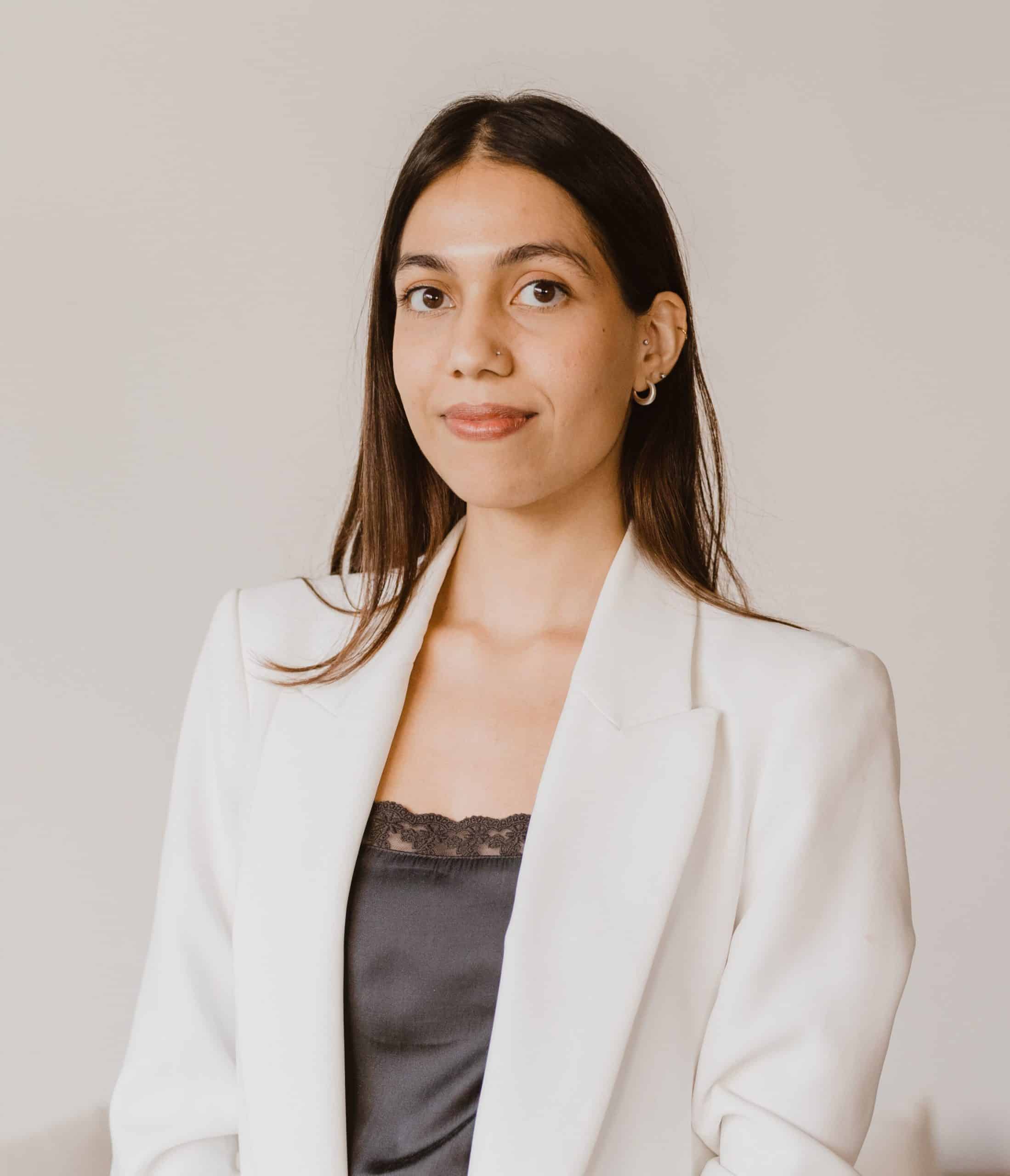Making an impact across a variety of industries, Shannon Kalayanamitr has a long history of entrepreneurship, her most recent endeavour being Thailand-based smart city solution provider, 5G Catalyst Technologies Co. Ltd. We caught up with Shannon as she shed light on her entrepreneurial drive and the important work behind 5GCT’s disruptive technological innovation.
Hailing from Thailand, Shannon Kalayanamitr is no stranger to entrepreneurship, having founded her first enterprise during university when she attempted to set up her own DJ-sourcing business. Equipped with an entrepreneurial instinct from a young age, Shannon was raised in a supportive household that pushed her to explore her instincts and venture out of her comfort zone. She knew her calling was not an ordinary one, and has since worked hard and persevered to get to where she stands.
Shannon describes her entrepreneurship in 3 major pillars: finance, media and marketing, and technology, which have been essential in shaping her role and path to founding 5G Catalyst Technologies Co. Ltd (5GCT). In her impressive career portfolio, Shannon has worked with many big names, from diving into investment banking with PwC and Lehman Brothers, to a role in venture capital at Gobi Partners and many other endeavours.

Bringing years of experience and knowledge into play, the serial entrepreneur established and scaled 5GCT to the forefront of Thailand’s smart city infrastructure. The cutting edge solution incorporates data technology, and Internet of Things (IoT), to clean, aggregate, and analyse data to build smart cities, alongside advancing healthcare, manufacturing and telecommunications in the region.
The woman entrepreneur and advocate has paved the way for many like her to shine and leave their mark on the technological sector. In a one-on-one with Hive Life, Shannon shares more on her entrepreneurial journey, being a leading woman in technology, and her predictions for the future of 5G solutions.

Could you start off by telling us a little about yourself and how you kickstarted your entrepreneurial journey?
I was born and raised in the States, I am a Thai American, and my parents are both Thai.
I moved back to Asia, graduated from one of the top Thai [business] schools, Thammasat University. I took the international programme and did finance, with a minor in marketing. It was quite the experience, but if I hadn’t taken that one decision to [complete] my college here, my life would have been on a completely different trajectory.
If I had to [separate] my life, there would be three main pillars of my experience, the first part being finance and banking. I began investment banking with Price Waterhouse Coopers and Lehman Brothers and broke into the world of distressed assets, restructuring. It was fun, and I learned a great deal! I later moved into the international corporate world, where I got to sink my teeth into corporate planning with emphasis on marketing and event management with Boonrawd International or Singha Beer. I started a financial advisory company with my former bosses and did a turnkey project to build a whole TV station from scratch, from feasibility, technical fit out, got to programme it ourselves, and put in the content we wanted.
Unfortunately that was not my destiny and I discovered technology instead. E-commmerce then was making quite the noise, and so I was one of the first people at Lazada Thailand, then shortly decided to start my own [women-focused] e-commerce platform with two other founders, called Moxy which was then JV’d to become Orami.
Fast forward to about four years ago, I went to a venture capital, and was on Shark Tank Thailand, alsoI joining Gobi for about three years, and did VC all over Southeast Asia. I finally recalled my itch for entrepreneurship and started a company called 5G Catalyst Technologies, and what we do is build smart city solutions that drive impact and sustainability.

How do you come up with your concepts and what is the process like for you?
I had always been creative in business, and I would always say my musical instrument is my laptop! In the beginning, I just had to work, put my head down, and learn the foundational skills. It was not until I was in my early 30s, when my ideas were finally starting to work.
The first part to the answer is that I just kept on trying and experienced tons of failures, and had to make sure I see the light at the end of the tunnel, but also not to think that this is the final resting place. That was the first part of my 20ish years of experience. The latter part was more about me [getting comfortable with it].
I keep along those three pillars I have, and my whole passion keeps me going. If the project does not have the impact, I would weave it into everything I do.

How has technology shaped your entrepreneurial journey?
I grew up in Silicon Valley, and my dad is an industrial engineer. I was always intimidated by technology and never thought that I would be smart enough to get into it.
As per my career, I never was in tech until Rocket Internet [Lazada] came looking for consultants and ex-investment bankers. I figured out that in technology, there is the “suit”, and then there is the tech person. I am the suit that understands the tech because it is about business models. There were two key things at play here- one, that if I was ever going to start a business, this might be one of the low barriers to entry at this time. I thought [to myself] I am in this sector that is gonna blow up, while not many people know about it, I am getting early with experts and can learn something here, and that’s how it shaped it.

Being a woman entrepreneur in tech, what challenges did you face, and what drives you to continue transforming the space?
Every woman has their own challenges, luckily my parents had been quite encouraging- having a lack of obstacles at home was my major drive to push through.
I like challenges, and so getting into careers that were kind of hard was interesting to me. I wanted to get in business, and eventually fell into finance. When I was in investment banking, I found out that there were not many women there. That in a sense seeded everything, and then once I was in tech, I was met with quite a bit of unspoken bias, but you just have to trust in yourself. Then, at one point, you do not see that you are a woman entrepreneur much rather, you are an entrepreneur who has experience and has been doing it for a while, with successes [and losses] you have accumulated over the years, and now almost see it to your competitive advantage, since there are not many women.
Certainly, it is a progression, but having a support network and people that encourage you goes a long way. I have a lot of strong women around me to shape me.

What has helped you overcome those challenges, and how can other women entrepreneurs apply this?
I came to realise that this is always a learning process, and I keep on doing swots on myself. It is like Zelda or games where you keep on picking up tools and strength along the way.
You have to take a look at yourself sometimes too. I did not see and accept my faults in the beginning- it is a big learning process, but I keep on checking and assessing myself. At the end of the day, you have to trust if you are going to survive or not, either you figure out you are going to plough through or you do not. You have to trust yourself that you have enough smarts to survive.
Do you have any advice for fellow entrepreneurs looking to enter the tech space?
If you are not certain of what to do, find and join a more mature startup, and learn from them, basically to understand the playbook! If I had not worked at Lazada, I would not have been able to do this. That had been a boot camp for me. It was painful yet probably the best experience in terms of growth and understanding technology.
If anybody wants to get into tech and you do not know where to begin, start somewhere, and eventually you will figure it out. Similarly, for this startup, I am doing things differently, because I learnt from my [previous experiences] in startups!

Could you introduce us to the 5G Catalyst Technologies Co. Ltd.’s platform, and what problem does it intend to solve?
5G Catalyst Technologies Co. started off with 5G as the driving force, but it turned out to be more of a supporting role. [It all began] when we were working with the National Telecom operator in Thailand, to help them monetise and commercialise 5G 26 Ghz spectrum that they had acquired, and we found out that one of the best use cases is smart cities.
Most people think that [incorporating] tech in a city makes it smart, but the bigger picture of a smart city is [to improve] the lives of citizens. For example, cleaner air, less traffic, garbage efficiency, monitoring air quality, water quality, and also being able to close the gap through inclusion. If the city’s smart, everyone must have the same access to healthcare, finance, education, employment via digital. That was kind of the big overall gambit of why a smart city is supposed to be smart.

Number two was why is it not happening across the world- there are around 20 cities that have actually done it! When we looked into it, it turns out that one of the main reasons why impact is not happening is because there is not enough data being gathered, [in regards] to the metrics such as the air quality and what have we done to reduce it.
Honing into Southeast Asia, we do not have the data, the analysis, hence the impact does not happen. We decided to solve the problem at the grassroots, which is to help the cities understand their pain points, gather, clean, and store data, and then analyse the data for them to better manage their cities. Our secret sauce is how much data, what types of data, how we transform using AI and Machine Learning to make them actionable to the local governments.
Could you briefly highlight the solution offered by 5GCT?
The main thing that we do is firstly aggregate and collect data, enrich the data, and then we analyse that data to [generate a solution.] It is [categorised] into four key segments – safety, security, healthcare, environment and energy.
What projects have you worked on that have incorporated this solution?
We decided to focus on this one city in the eastern seaboard of Thailand called Rayong. We conducted a pilot project last year that turned into a first commercial contract, and are now [officially] a post revenue startup.
We decided to focus on that region, [since] the [municipal committee] there is quite open in terms of impact and understand our smart [solution]. The second thing is that the area is full of [viability] in resource efficiency, as well as business opportunities. It has got industrial and agricultural, and is a great testing ground.
Everything that we want to achieve [comes] in regards to delivering a robust model that can eventually be scalable nationwide and to other emerging markets.

5G Catalyst Technologies came under the global spotlight and recently gained recognition by the UN. What does this mean for you and the platform’s potential to reach new heights?
It was [incredible] to be recognised by the UNGSII, part of the SDG Cities Programme, and we were learning from the other cities in the programme as well, and vice versa. For us, it is the partnerships and learning process- we are able to elevate our target using the UN frameworks in place. Being able to map it to SDG goals, using some of their metrics and learning from other cities and organisations, has [enabled] us to develop our platform in the right direction in our country, as well as meet global standards.

How has sustainability become a core part of your operations?
Impact and sustainability definitely have been key to our operations. Sustainability has been at the forefront of everything we do, from the partners we choose, the metrics we use, to the team that we have.
The majority of our work is now centred on sustainability and resilience. We are still at an early stage, and sustainability is such a big spectrum of things, thus we have two key factors- business and impact, so we need to weigh that when we are developing the rest of the platform.

What are your future plans for 5GCT?
This year, we are focusing on ensuring that we work with Rayong, we get the majority of pain points solved in the right way. Next, for the platform that we are building this year, we want to be able to start replicating it to other cities by next year.
So, the goal is to get everything right this year, work on the city, and then for next year, start to scale.
What is next for you?
For me as a single mom, I want to make sure that I balance work and my kids in the best way. So, it is more of my personal goals that I want to focus on. Sometimes, we fall victim to being too much of a workaholic, and other things suffer for that.
I believe you can have it all but in different spurts, where it might not be balanced the whole time yet you are still able to focus on what is important.

Featured Banner Image: @shannonkalaya
Related Articles
Green Infrastructure Guide: 7 Ways to Build a Sustainable Ecosystem within Urban Cities in APAC





